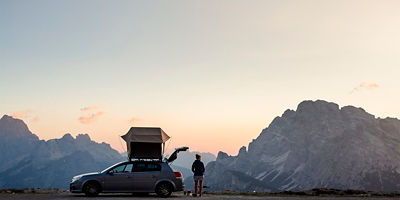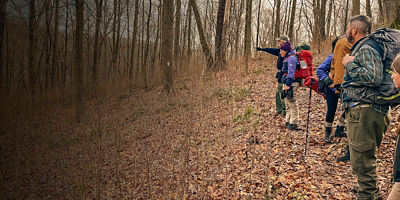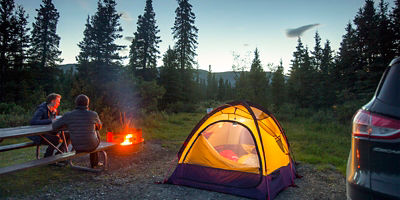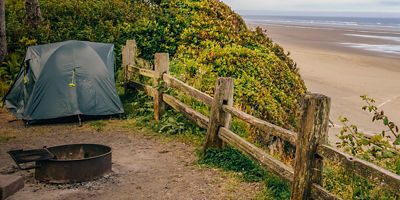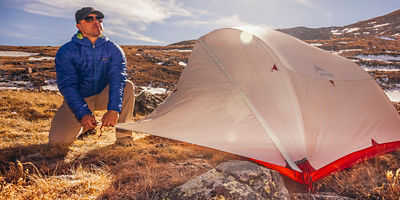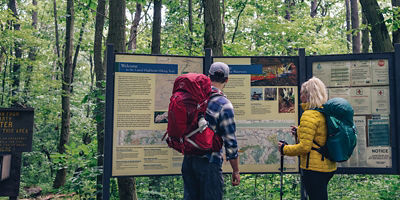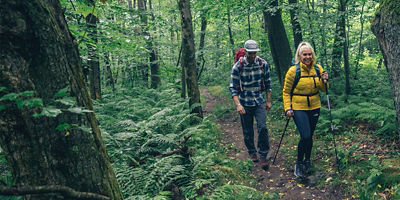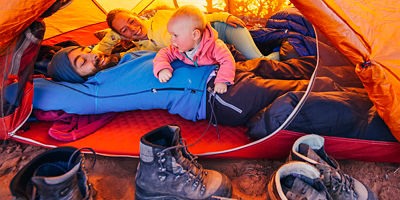
Whether it’s noisy campers next door, symptoms of high-altitude sickness, or anxiety from the unknowns of adventure, falling asleep outside is often a skill to be learned. It can cause the body’s sensors to work overtime: Your subconscious brain is still alert, searching for sounds and changes in a new environment beyond the controlled “safe space” where you normally sleep. Once you enter this state of hyperawareness (intentionally or not), it can be difficult to exit. Setting your brain and body to relax into sleep might take more effort. Start by reassuring your body that you are, indeed, safe to help calm your mind. Then utilize some of these tools and tips to manage both your surroundings and your mental state to create a healthy sleep environment outdoors.
Set up for success
Check your overall orientation. Start with your tent setup, factoring how the sunrise will hit, heat and light your tent—and seek shade accordingly. Next, position your sleeping pad and bag on level ground, and ensure your head isn’t resting below your heart. If you’re dealing with some type of incline in your sleeping location, place your head at the highest point. This’ll keep blood from lingering in your skull and creating a pressure headache that can wake you up in the middle of the night.
Earplugs: Tried and true
Don’t let late-night music from a neighboring campsite or car sounds from a nearby road ruin your shut-eye. Test out your earplugs before you embark on your camping trip, as the fit and function will depend greatly on whether the shape of your ear and the plugs are compatible. Look for reusability, flexible designs, and a snug fit. Noise-canceling wireless earbuds might do the trick, too (if they’re charged).
Use an eye mask: A little fabric goes a long way
If you’re jonesing for an early alpine start and need to fall asleep before the sun goes down, pack an eye mask. You’ll block out the sun with its opaque fabric and applying gentle pressure to the eyes can provide a soothing sense of relaxation. Don’t forget to factor early morning light, either, where covering your eyes can buy you a couple extra hours of Zs.
Tea: soothing, hydrating, warming—a win-win-win
Treat yourself to a bedtime cup of tea. Chamomile tea is a natural anti-inflammatory that can help you relax. Ginger tea will soothe your stomach and provide extra warming properties. Valerian root tea is a natural, light sedative and anxiety reducer.







